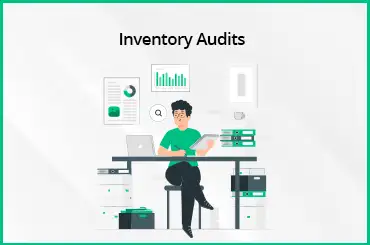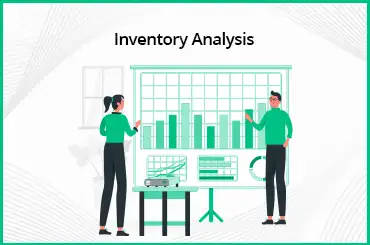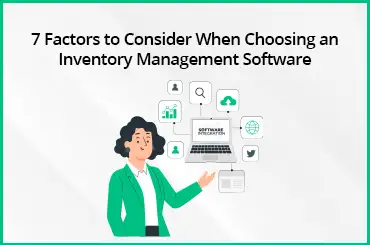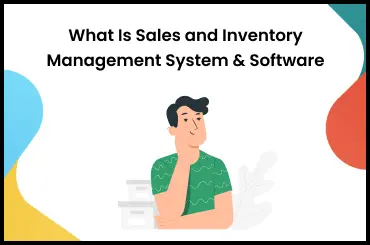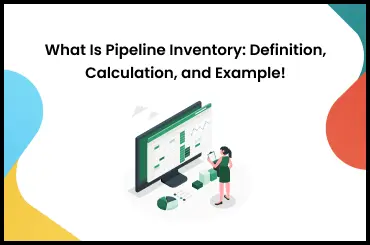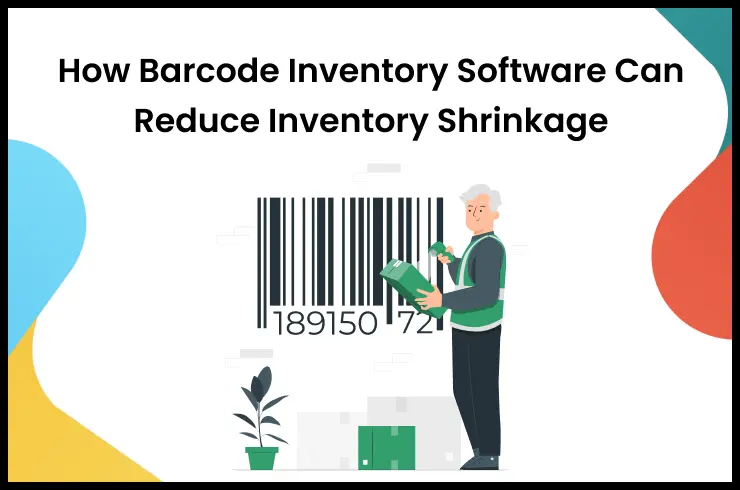Think about leveraging the benefits of inventory management if you want to avoid inventory issues such as stock-outs, overstocking, and lost or misplaced items. Implementing an effective inventory management system can revolutionize your operations, since not only does it save time and money, but it also improves customer satisfaction and increases revenue.
In this blog post, we'll explore the numerous benefits of inventory management that ensure your inventory processes run like a well-oiled machine. So, let's take a look!
What Is Inventory Management?
Inventory management is the practice of continuously tracking and observing a business's inventory levels, orders, sales, and deliveries in real time. It helps small businesses ensure they have an efficient system for stocking and distributing products without needing to overstock or understock.
Inventory management is the process of tracking and controlling inventories to guarantee businesses have enough products on hand to satisfy customer demands. It involves forecasting future demand, production planning or purchasing strategies, and maintaining stock levels to maximize inventory turnover.
Some popular inventory management examples are the just-in-time (JIT) inventory system, ABC analysis (categorizing inventory by importance), and the economic order quantity (EOQ) model.
What Are the Advantages of Inventory management?
There are many advantages of inventory management, such as:
Reduced Costs
Inventory management has the potential to help you save money on storage expenses and minimize waste. You can closely monitor inventory levels and order only what you need.
Increased Efficiency
Inventory management in logistics can make your business more efficient by tracking stock levels closely and staying aware of what products are in stock and where they are located.
Enhancing Customer Service
By saving time searching for specific items, businesses can improve customer service, as employees can find item history quicker and resolve customer queries.
Improved Stock Control
Inventory management in financial management can also benefit your stock levels by helping to monitor them closely and ensure there's never an overstock issue. This saves money in the long run since you won't have to worry about having too much of one item or not enough of another.
Facilitated Planning
Inventory management in supply chain management can also benefit you with better planning for the future. With an effective system, you can closely monitor stock levels and stay ahead of demand changes or market fluctuations. Doing this helps guarantee you never run out of stock or overstock certain items.
Improved Decision-Making Capabilities
Having accurate and up-to-date inventory levels allows managers to make better decisions regarding production plans, and procurement operations.
Benefits of Inventory Management Software Integrated with ERP
The many benefits of the ERP inventory management system are explained in detail here:
Improved Accuracy of Inventory Data
Inventory management in working capital management software integrated with ERP provides more accurate inventory data because it's updated in real-time as soon as a transaction occurs, eliminating the need for manual entry and reducing errors.
Enhanced Inventory Visibility
Another benefit of inventory management software integrated with ERP is that you always have a comprehensive view of your stock levels. This enables you to make informed decisions regarding stocking levels and reordering.
Reduced Costs
Integrating systems can help cut expenses by automating repetitive tasks such as ordering and invoicing. This frees employees to focus on other duties and also decreases the number of manual efforts and errors made. By eliminating the need for manual data entry and paper forms, this system saves time and reduces clutter at the same time.
Improved Customer Service
When customers know you have an accurate view of your inventory levels, they are more likely to be satisfied with your overall level of customer service. Integrated systems can help track customer orders and ensure they are filled promptly.
Increased Compliance
The benefits of effective inventory management systems integrated with ERP can help ensure you abide by regulations such as food safety or legal obligations by streamlining inventory movements and tracking. It helps to reduce the risk of fines or other penalties for noncompliance.
Increased Profitability
With better functions of inventory management, you can decrease the amount of stock that goes unsold or is overstocked. This helps boost your bottom line and profits.
Reduced Risk of Theft
Integrated systems can help identify suspicious activity and monitor inventory more closely, thus decreasing the potential for theft or other losses due to inaccurate inventory data.
Improved Supply Chain Management
Integrating inventory management and ERP software gives you better insight into your entire supply chain. This can help identify potential issues before they arise and optimize delivery times and costs accordingly.
What Are the Disadvantages of Inventory Management Systems?
The cost of inventory management solutions can be high, and learning them can be complex. Let's look at some of the inventory management drawbacks and challenges:
Increased Costs
One major downside of inventory management systems is they often lead to higher costs associated with managing inventory. Investing in new technology and software requires a separate budget allocation, along with additional staff training for users to maximize efficiency, adding to costs.
Complexity
Inventory management systems often involve tracking large amounts of data, and processes to comprehend this data. A streamlined training model for the inventory management process is needed to bring inventory teams up to speed on managing this. Moreover, regular upkeep and updates may be necessary - further adding to the complexity.
Reduced Flexibility
An inventory management system may restrict the business' ability to customize certain tasks. This is because these programs often rely on specific rules and processes which must be adhered to, making it difficult for a business to customize its approach according to individual needs and demands.
Implementation Challenges
Inventory management systems can be challenging to implement successfully because they often require changes to existing business procedures that could disrupt operations and prove tough to manage. Furthermore, finding staff with sufficient skills and knowledge necessary for effectively operating these systems may also be challenging.
Having understood the advantages and disadvantages of inventory management solutions, let's understand how to select the right system for this purpose.
How to Select the Right Inventory Management System (IMS)
Inventory management systems (IMSs) can substantially impact the efficiency of your business operations. Here are some tips to help you select the ideal IMS for your company:
Define Your Needs
Before adopting an IMS, take some time to identify precisely what you need to track. What type of inventory needs to be monitored? How many items require tracking? And at what level of detail?
Research Your Options
You should research your options after determining what you need. Read online reviews, talk to other businesses in your industry, and ask friends or family for recommendations.
Compare Features and Prices
Once you've narrowed your options, it's time to compare features and prices. Ensure you're getting everything you need at a price that fits your budget.
Careful Evaluation
Before making a final decision, test out the IMS yourself. Set up a trial account or request a demo from the company to see how user-friendly it is and if it meets all your requirements.
Why Should You Choose a Cloud-Based Inventory Management System?
There are numerous advantages to selecting a cloud-based inventory management system for your business. Let's have a thorough look at the advantages of using cloud-based software:
- Scalability - Cloud-based systems offer easy scalability over the internet, so you don't need to invest in new hardware or software upgrades from your end.
Flexibility - They allow you to access your data and inventory from any location at any time, making them ideal for businesses with multiple locations or mobile workers. This type of access is suitable for companies requiring real-time stock-level updates.
- Cost Savings - Cloud-based systems are more cost-effective than on-premise solutions since you don't need to invest in costly infrastructure.
- Improved Efficiency - Cloud-based inventory management systems can automate many tasks, such as ordering and reordering stock, saving time, improving real-time visibility, enhancing decision-making, and boosting overall efficiency.
- Improved Data Security - They provide superior data security due to their location in secure data centers. This helps safeguard your private information from unauthorized access and exposure.
Integration Opportunities - Many cloud inventory systems can be integrated with other software programs, such as accounting and sales systems, allowing you to streamline your operations.
Keeping Your Inventory in Check With TranZact
Inventory management is critical to any business but can be challenging for small businesses. TranZact can help you keep your inventory levels in check and avoid the common pitfalls that can lead to stock-outs or excess inventory.
TranZact provides real-time visibility into your inventory levels, so you can always know what's on hand and make informed decisions about purchasing and production. It enables you to ensure increased transparency and gain improved inventory control with minimized costs.
FAQs on Benefits of Inventory Management
1. What are the top inventory management benefits?
Inventory management leads to the accuracy and quality delivery of customer orders. When you have an inventory management system in place, you can determine how much inventory you must always keep on hand. This helps to avoid understocking and overstocking.
2. What is the importance of inventory management and its benefits?
Inventory management is essential to any business, regardless of size. This tool makes tracking all your supplies and determining prices more accessible. It equips you to cope with sudden changes in demand without compromising the quality or experience of your customers.
3. What are the benefits of an inventory list?
Inventory lists are crucial since they show what is available to sell or use, how efficiently you turn inventory, and which items aren't selling. They also reduce carrying costs and facilitate accurate tax reporting as well.
4. What are the three purposes of inventory?
The three purposes of inventory are:
- Easy and accurate provision of data for short-term and long-term inventory planning.
- Continuously supplying the necessary materials and maintaining a systematic inventory record.
- Ensure that goods are of high quality and are priced reasonably.







